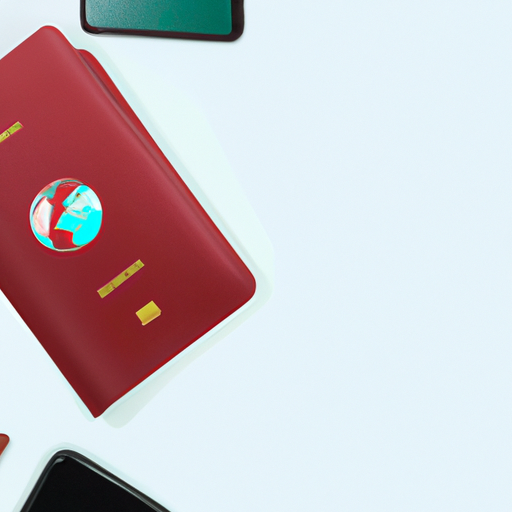
The Importance of User-Friendly Mobile Booking Interfaces
In today’s digital age, mobile devices have become an integral part of our lives. From checking emails to browsing social media, we rely on our smartphones for almost everything. This shift in consumer behavior has also affected the way people book hotels. Gone are the days when travelers would call a hotel directly or visit a travel agency to make a reservation. Now, with just a few taps on their mobile devices, travelers can book a hotel room within minutes. This is why it is crucial for hotels to have user-friendly mobile booking interfaces.
First and foremost, a user-friendly mobile booking interface is essential because it provides a seamless experience for travelers. When potential guests visit a hotel’s website or mobile app, they expect a smooth and hassle-free booking process. If the interface is clunky or difficult to navigate, it can lead to frustration and ultimately result in potential guests abandoning the booking process altogether. By investing in a user-friendly mobile booking interface, hotels can ensure that their guests have a positive experience from start to finish.
Moreover, a user-friendly mobile booking interface can also help hotels increase their conversion rates. When travelers find it easy to book a hotel room on their mobile devices, they are more likely to complete the booking process. On the other hand, if the interface is confusing or requires too many steps, potential guests may abandon the booking and look for alternatives. By streamlining the booking process and making it user-friendly, hotels can capture more bookings and ultimately increase their revenue.
Additionally, a user-friendly mobile booking interface can also enhance a hotel’s brand image. In today’s competitive market, hotels need to differentiate themselves from their competitors. By offering a seamless and user-friendly mobile booking experience, hotels can create a positive impression on potential guests. This can lead to increased customer loyalty and positive word-of-mouth recommendations. When travelers have a great experience booking a hotel room on their mobile devices, they are more likely to return to the same hotel in the future and recommend it to their friends and family.
To create a user-friendly mobile booking interface, hotels should consider a few key strategies. Firstly, the interface should be visually appealing and easy to navigate. Clear and intuitive design elements, such as large buttons and simple forms, can make the booking process more straightforward for users. Secondly, hotels should optimize their mobile booking interfaces for different screen sizes and resolutions. This ensures that the interface looks and functions well on various devices, from smartphones to tablets. Lastly, hotels should also prioritize security and privacy. Implementing secure payment gateways and protecting customer data can help build trust and confidence among potential guests.
In conclusion, having a user-friendly mobile booking interface is crucial for hotels to succeed in today’s digital landscape. By providing a seamless experience, increasing conversion rates, and enhancing brand image, hotels can attract more guests and increase their revenue. By implementing strategies such as visually appealing design, optimization for different devices, and prioritizing security, hotels can create a user-friendly mobile booking interface that meets the needs and expectations of today’s tech-savvy travelers. So, if you’re a hotel owner or manager, it’s time to invest in a user-friendly mobile booking interface and stay ahead of the competition.
Leveraging Personalization to Enhance Mobile Booking Experiences

In today’s digital age, mobile bookings have become increasingly popular among travelers. With the convenience of smartphones and tablets, people can easily search for and book hotels on the go. As a result, hotels need to adapt their strategies to succeed in this mobile booking landscape. One effective strategy is leveraging personalization to enhance the mobile booking experience for customers.
Personalization is all about tailoring the experience to meet the individual needs and preferences of each customer. By understanding their preferences, hotels can provide a more personalized and engaging booking experience. This can lead to increased customer satisfaction and loyalty.
One way hotels can leverage personalization is by offering personalized recommendations based on the customer’s past booking history. By analyzing the customer’s previous stays, hotels can suggest similar properties or destinations that they might be interested in. For example, if a customer frequently books beachfront resorts, the hotel can recommend other beachfront properties in different locations. This not only saves the customer time in searching for options but also shows that the hotel understands their preferences.
Another way to enhance the mobile booking experience through personalization is by offering customized promotions and discounts. By analyzing the customer’s booking patterns and preferences, hotels can offer targeted promotions that are relevant to their interests. For example, if a customer frequently books weekend getaways, the hotel can offer exclusive weekend packages or discounts. This not only incentivizes the customer to book but also makes them feel valued and appreciated.
Furthermore, hotels can leverage personalization by providing a seamless and personalized user interface. This means designing a mobile booking platform that is intuitive, user-friendly, and visually appealing. By understanding the customer’s browsing behavior and preferences, hotels can customize the user interface to display relevant information and options. For example, if a customer frequently searches for pet-friendly hotels, the mobile booking platform can prominently display pet-friendly filters and options. This makes the booking process more efficient and enjoyable for the customer.
In addition to personalization, hotels can also enhance the mobile booking experience by integrating social media features. Social media has become an integral part of people’s lives, and hotels can leverage this by allowing customers to log in or sign up using their social media accounts. This not only saves the customer time in creating a new account but also allows hotels to access valuable data and insights from the customer’s social media profile. This data can then be used to personalize the booking experience further.
Moreover, hotels can encourage customers to share their booking experiences on social media by offering incentives or rewards. This not only generates user-generated content and positive reviews but also increases brand visibility and attracts new customers. By integrating social media features into the mobile booking experience, hotels can tap into the power of social media and leverage it to their advantage.
In conclusion, leveraging personalization is a crucial strategy for hotels to succeed in mobile bookings. By understanding the customer’s preferences, offering personalized recommendations, customized promotions, and a seamless user interface, hotels can enhance the mobile booking experience and increase customer satisfaction. Additionally, integrating social media features allows hotels to tap into the power of social media and attract new customers. By adopting these strategies, hotels can stay ahead in the competitive mobile booking landscape and thrive in the digital age.
Optimizing Mobile Payment Options for Seamless Bookings
In today’s digital age, mobile bookings have become increasingly popular among travelers. With the convenience of smartphones and tablets, people can easily search for and book hotels on the go. As a hotel owner or manager, it is crucial to optimize your mobile payment options to ensure seamless bookings and maximize revenue.
One of the first strategies to consider is offering a variety of mobile payment options. While credit cards are still the most common form of payment, many travelers now prefer alternative methods such as mobile wallets or digital payment platforms. By accepting a wide range of payment options, you can cater to the preferences of different customers and increase the likelihood of completing a booking.
To optimize mobile payment options, it is essential to partner with reliable and secure payment providers. Customers need to feel confident that their personal and financial information is protected when making a mobile booking. By working with reputable payment providers, you can offer secure transactions and build trust with your customers.
Another important aspect of optimizing mobile payment options is ensuring a user-friendly interface. The booking process should be seamless and intuitive, allowing customers to easily navigate through the payment steps. A cluttered or confusing interface can lead to frustration and abandoned bookings. By investing in a user-friendly mobile booking platform, you can enhance the overall customer experience and increase conversion rates.
Furthermore, it is crucial to optimize your website for mobile devices. A responsive design that adapts to different screen sizes and resolutions is essential for a smooth mobile booking experience. Slow loading times or distorted layouts can deter potential customers and lead to lost bookings. By investing in mobile optimization, you can ensure that your website is accessible and visually appealing on all devices.
In addition to optimizing mobile payment options, it is important to offer incentives for mobile bookings. Many travelers are motivated by discounts or exclusive offers when booking through their mobile devices. By providing special promotions for mobile bookings, you can encourage customers to choose your hotel over competitors. These incentives can be in the form of discounted rates, complimentary upgrades, or loyalty program rewards.
Moreover, integrating mobile payment options with your hotel’s loyalty program can be a powerful strategy. By allowing customers to earn and redeem loyalty points through mobile bookings, you can incentivize repeat business and foster customer loyalty. This integration can also provide valuable data on customer preferences and behavior, allowing you to personalize future offers and enhance the overall guest experience.
Lastly, it is important to regularly analyze and optimize your mobile booking process. By monitoring key metrics such as conversion rates, bounce rates, and average booking value, you can identify areas for improvement and implement necessary changes. A/B testing different payment options, interfaces, or incentives can help you determine the most effective strategies for your hotel.
In conclusion, optimizing mobile payment options is crucial for hotels to succeed in mobile bookings. By offering a variety of payment methods, partnering with secure providers, and ensuring a user-friendly interface, you can enhance the overall customer experience and increase conversion rates. Additionally, offering incentives and integrating mobile payments with loyalty programs can further encourage mobile bookings and foster customer loyalty. By regularly analyzing and optimizing your mobile booking process, you can stay ahead of the competition and maximize revenue in the mobile era.


